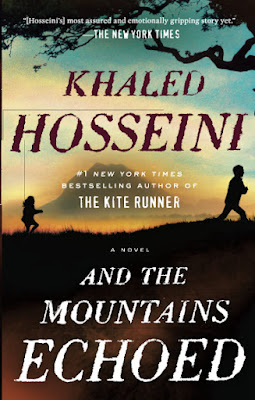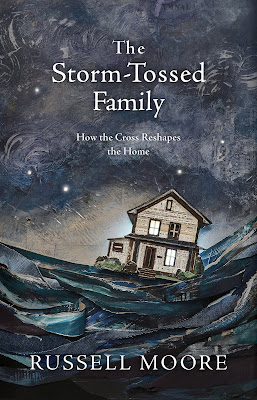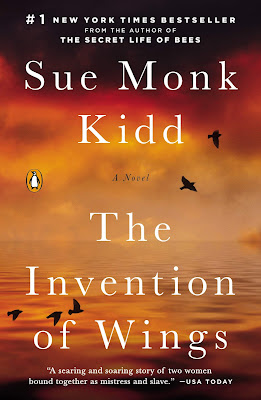For the third year in a row (scroll down for 2020 and 2019), I am posting the ten books that I enjoyed the most in the past year. Here they are, in the chronological order that I encountered them, with a 2021 Newbery commentary at the end.

1. Jane Eyre by Charlotte Bronte
I decided at the beginning of 2021 to read a few classic novels that, for some reason or another, I had never gotten to. I started with Jane Eyre, which is absolutely brilliant. The capacity of these Victorian women authors to provide such complex character sketches is so rich. I owe it to Peter Bast who convinced me years ago to not shy away from Pride and Prejudice on the grounds that most big fans are usually women, and I'm thankful that he rid me of such...prejudice.
"The sovereign hand that created your frame, and put life into it, has provided you with other resources than your feeble self, or than creatures feeble as you."

2. And the Mountains Echoed by Khaled Hosseini
For fans of The Kite Runner and A Thousand Splendid Suns who recognized Hosseini's brilliance but just found those great books so hard to read, this may be the perfect novel. The international and long-time-arc elements of Hosseini's other novels are still there, but the moments of redemption are less dark. It was published in 2013, and it seems like it missed the level of fanfare that the prior two novels received.

3. Beyond the Bright Sea by Lauren Wolk
The first of two YA novels on this list, this one came to me via Rachel's recommendation. Wolk's character and intricate plot are set in the Elizabeth Islands about a hundred years ago, off the coast of Cape Cod, a remote area that I've never really imagined before. So it's that great blend of domestic/accessible and exotic/fascinating. I love to read books set in areas where I travel, so I later read this book aloud to our kids when we spend a few days in Cape Cod in June.
4. Christ Plays in Ten Thousand Places by Eugene Peterson
Peterson had a book on last year's list, and if I had to guess, I would say that he's likely to have one on next year's list. The more I read from him, the more I want to read. This book was recommended by Russell Moore (see below) on a blog. It forms part of Peterson's "Spiritual Theology" series which focuses on the marriage of biblical theology to everyday practicality. It's a decently hefty read, but very worthwhile.
"Is it not obvious by now that all through this narrative of the formation of the Jesus community the means used are unconventional, countercultural, and alien to any person who knows nothing of resurrection? But once resurrection is introduced into the story, all the ways in which we work have to be rethought, re-imagined, and reworked. The world's means can no longer be employed for kingdom ends."
5. Hope in Times of Fear by Timothy Keller
I was looking forward to this new book. It wasn't what I expected, but I'm happy that it is what it is. Keller's writing about Easter and Resurrection ended up being timed to both a worldwide pandemic as well as his own personal battle with what appears to be terminal cancer. Far from triumphalistic, he spends a lot of time developing how a strength-in-weakness or death-before-resurrection parabola is so central to the Biblical story. I also can't help plugging Keller's
article in The Atlantic. I'm so glad that he got to write this book.
"The Bible's teaching is that the road to the best things is not through the good things but usually through the hard things...if we remember this, we can face anything."
6. The Final Solution by Michael Chabon
This book, recommended to me by Brian Beise, is a short detective novel which never says that it's about a 90-year old Sherlock Holmes pulling himself out of retirement for one final case, but it nevertheless obviously is about that. The writing is great. The restraint in never actually saying what is so obviously true is maybe the most worth savoring.
7. Prayer in the Night by Tish Harrison Warren
This book just picked up Christianity Today's Book of the Year Award (second time for her after Liturgy of the Ordinary). It's a truly fantastic look at finding hope in the darkness, using a Compline prayer from the Book of Common Prayer as the skeleton for the book structure. Friends have pointed out how much they feel this book is similar in theme to my own, and I definitely agree. The gift of this book, for me, was getting to read the same thoughts I needed to write in a fresh voice different from my own. I've already read two other books from her bibliography.
"Christian discipleship is a lifetime of training in how to pay attention to the right things."
8. The Storm-Tossed Family by Russell Moore
Having greatly appreciated Moore's voice on a lot of current events, I wanted to read one of his books. I was somewhat surprised to see this one themed around family, since I had mostly encountered him talking about public policy and such. It's absolutely brilliant and insightful, taking Family off the pedestal where many have put it, and placing it rightfully under Christ's lordship so that it can be more than what it could be as a merely disordered love. I suppose a good part of my affinity for this work was my identification with Moore's own personality in family life, so I'm thankful that he was that personal in his writing.
"What is meant for [something] to be good...would be for it to go according to my own plan. I was deeply and profoundly stupid."
9. The Invention of Wings by Sue Monk Kidd
Rachel's family had a family reunion in Charleston, where I had never been, and this was a read to accompany that new place. It's an epic tale following the stories of a budding woman abolitionist and a young slave girl in South Carolina in the first half of the 19th century.
10. Stargirl by Jerry Spinelli
Maggie was so taken with this one, that I wanted to read it myself. I've loved Spinelli ever since reading Maniac Magee in 4th grade. The storytelling is good, but ultimately this book rises on the main character of Stargirl. It's a story of non-conformity, but unlike a lot of such stories (e.g. Timmy Failure), the non-conformity is ultimately self-giving love, and it's beautiful and sad as such stories probably always are.
There is a sequel, which is pretty good, but Rachel proposed a better idea for a sequel. There is also a Disney+ movie, and I don't think I want to see it.
BONUS: 2021 NEWBERY REFLECTION
(our Newbery Rank list here)
The 100th Newbery Medal was award to Tae Keller for How to Trap a Tiger, which is a story of a young Korean-American girl (and her sister) coping with the pending death of their grandmother, who adheres to a number of traditional Korean beliefs. The writing is quite good, and probably the best plot achievement is how the reader is suspended for quite a long time about how much magic is really going on in the story. Not a home run in my book (still waiting for a year when the Newbery is a top 10 read for me), but a great book.
*At the end of the book, there is a very brief mention of the teenage sister being in a same-sex relationship. It seems completely extraneous to the story, but the casual normality of it was likely the author's point. I leave it to the reader to decide.


















